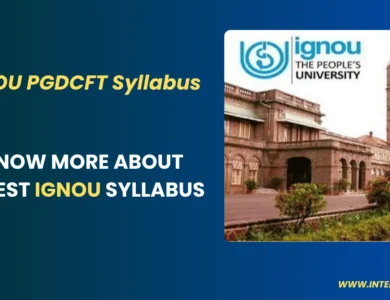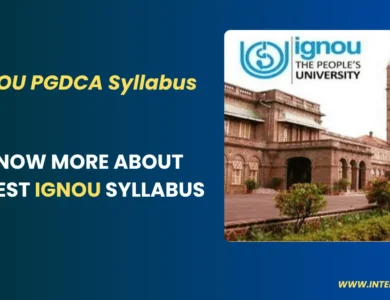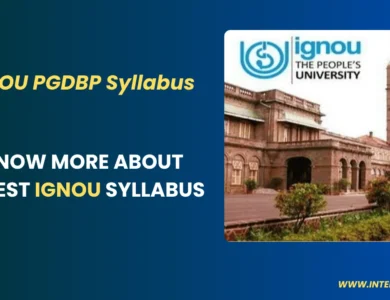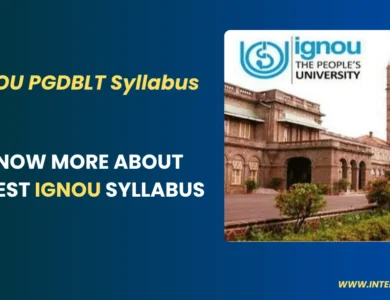IGNOU DWM Syllabus 2025
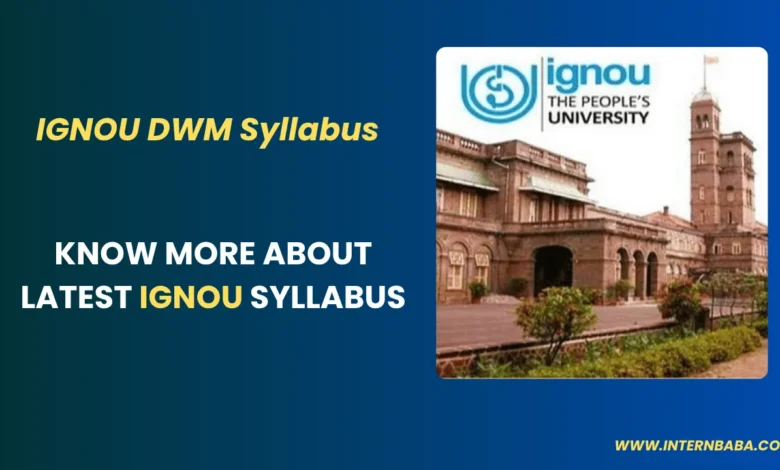
If you’re planning to pursue the Diploma in Watershed Management (DWM) from IGNOU, understanding the syllabus is your first step toward success. The IGNOU DWM Syllabus 2025 has been updated to ensure students receive relevant, skill-based education aligned with current industry and environmental needs. In this guide, we’ll walk you through everything you need to know about the DWM syllabus, including the credit structure, course breakdown, subject details, admission process, and frequently asked questions. Whether you’re a new student or re-registering, this detailed guide will help you plan your academic journey effectively and with confidence.
Overview of IGNOU DWM Program
The Diploma in Watershed Management (DWM) is an annual academic program offered by the Indira Gandhi National Open University (IGNOU). The program is designed to build capacity in the areas of land and water resource management, focusing on sustainable agriculture, conservation, and rural development. This diploma is highly suitable for individuals involved in rural development, agriculture extension, or watershed project implementation.
IGNOU’s DWM program is ideal for:
- Working professionals in the agricultural sector
- Extension workers and rural development staff
- Freshers looking to build a career in water and land management
- Entrepreneurs planning to enter the agro-based sector
The curriculum is structured under a credit-based system, which ensures that students can keep track of their academic progress while managing their time efficiently.
Highlights of IGNOU DWM Syllabus 2025
| Feature | Details |
|---|---|
| Program Name | Diploma in Watershed Management (DWM) |
| Exam System | Annual |
| Total Credits | 32 |
| Category | IGNOU DWM |
| Eligibility | 10+2 or equivalent |
| Medium of Instruction | English and Hindi |
The syllabus is composed of eight courses, all of which are compulsory. These include both theoretical and practical components to give students a holistic understanding of watershed management.
IGNOU DWM Syllabus 2025: Course Breakdown
The IGNOU DWM syllabus is organized to cover essential areas such as hydrology, soil conservation, rainfed farming, and agroforestry. Here’s a detailed look at the course structure:
| Course Code | Course Title | Theory Credits | Practical Credits | Total Credits |
| BNR 101 | Fundamentals of Watershed Management | 2 | 2 | 4 |
| BNR 102 | Elements of Hydrology | 2 | 2 | 4 |
| BNR 103 | Soil and Water Conservation | 2 | 2 | 4 |
| BNR 104 | Rainfed Farming | 2 | 2 | 4 |
| BNR 105 | Livestock and Pasture Management | 2 | 2 | 4 |
| BNR 106 | Horticulture and Agro-Forestry Systems | 2 | 2 | 4 |
| BNR 107 | Funding, Monitoring, Evaluation & Capacity Building | 2 | 2 | 4 |
| BNRP 108 | Project Formulation | 0 | 4 | 4 |
| Total | 14 | 18 | 32 |
All the subjects are mandatory, and students must complete all components to qualify for the diploma certificate. The inclusion of practical credits emphasizes hands-on learning and real-world applications.
IGNOU DWM Credit System Explained
As part of its flexible learning model, IGNOU implements a credit-based system. This system allows students to accumulate credits through successful completion of courses. One credit equals approximately 30 hours of student engagement, including study time, practical sessions, and assessments.
To earn the Diploma in Watershed Management, students must complete 32 credits. Each course is designed to offer a balanced mix of theory and practice. Credits are awarded only upon successful completion of all assignments, practicals, and exams for each course.
Admission, Re-registration & Flexibility
Students may enroll in the DWM program during IGNOU’s standard admission cycles (January or July sessions). At the time of admission, students select all the compulsory courses. In case they are unable to complete the program in one academic year, they have the option to re-register for the next term to complete pending components.
IGNOU allows a maximum duration of 4 years to complete the diploma, offering ample flexibility to learners who are working or managing other responsibilities.
Importance of Watershed Management
Watershed management has gained significance in India and across the world due to increasing environmental challenges, including soil erosion, water scarcity, and unsustainable agricultural practices. This diploma aims to build expertise that can contribute to:
- Sustainable water use
- Soil conservation
- Livelihood enhancement in rural areas
- Ecological restoration and planning
Graduates of the DWM program can work in government projects, NGOs, agricultural consultancies, or pursue further education in related disciplines.
Benefits of Studying DWM from IGNOU
- Government-Recognized Certification: The diploma is valid for employment and higher studies.
- Skill-Focused Curriculum: Courses are designed with an emphasis on real-world skills and applications.
- Study from Anywhere: Learners can study at their own pace with high-quality printed and online materials.
- Support Network: Access to regional centers, online forums, and expert faculty.
- Cost-Effective: Affordable fees make it accessible to students from diverse backgrounds.
Tips to Succeed in IGNOU DWM Program
- Understand the Syllabus: Familiarize yourself with each course’s learning outcomes.
- Follow a Study Schedule: Allocate weekly time slots for theory and practicals.
- Engage with Peer Groups: Join discussion forums or local study groups.
- Complete Assignments on Time: Internal assessments are crucial for passing.
- Attend Practical Sessions: These carry high credit weight and add real-world value.
Frequently Asked Questions (FAQs)
Q1: How many credits are required to complete the IGNOU DWM program?
A: A total of 32 credits are required to earn the Diploma in Watershed Management.
Q2: Are all courses in the DWM program compulsory?
A: Yes, the program consists of 8 compulsory courses with both theory and practical components.
Q3: Can I complete the program in one year?
A: The program is designed to be completed in one year, but students are allowed up to 4 years.
Q4: Is the diploma recognized for employment?
A: Yes, IGNOU is a central university, and its diplomas are recognized for employment and further studies.
Q5: Where can I access study material for the DWM program?
A: Study materials are provided upon enrollment and are also available online on IGNOU’s eGyanKosh portal.
For more detailed updates and notifications, visit the official IGNOU website or your respective regional IGNOU center.


